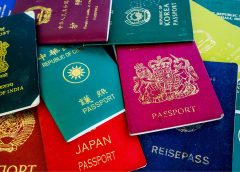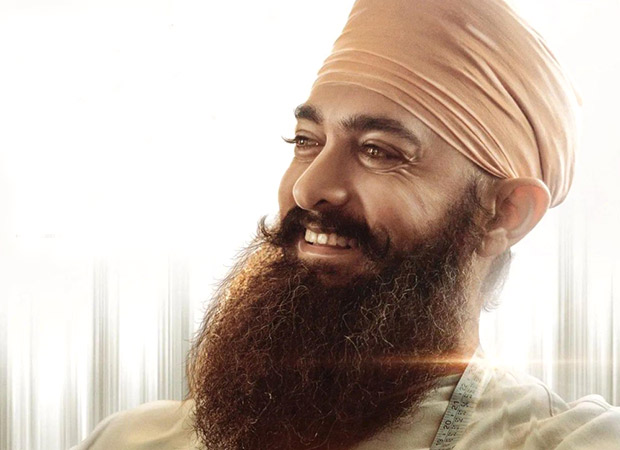
You Think Flying Is Stressful Right Now? Try Traveling With an Indian Passport
[ad_1]
This one’s personal.
A few days ago, I read a scathing opinion in The Guardiantitled, “Only a country as complacent as the U.K. could give up its border privilege so easily.” Oh, burn! The author, Nesrine Malik, writes about low-ranking passports and passport privileges: “Someone with a low-ranking passport will tell you that in all interactions with this border official you absolutely must keep your counsel, in the knowledge that this guard who has your passport in their hands is, for the next few minutes, the most powerful person in your life.”
As an Indian passport holder, reaching the immigration counter at the airport is possibly the 10th step. First, I need to apply for a visa, sometimes months in advance. Indians can travel visa-free to 60 countries, but most western nations are not welcoming enough to let us enter without jumping through hoops.
Have you ever had to apply for a visa? Or know someone who had been refused one? No? Then let me enlighten you.
First, you need to ascertain if you need a visa. If you’re an average Indian traveler, then the answer will most likely be yes for most countries. Then you need to find out the category and process. It can range from a simple form online and fee (Sri Lanka and Singapore) to a multi-step process including a stack of documents and a visit to the embassy.
For most of Europe and the U.S., it’s the latter. Forms, proof of travel and stay, insurance, a letter from an employer, salary slips and bank statements, income tax evidence, references in the country of visit, and biometrics are some of the things you may need to provide. It also requires non-refundable processing fees (Schengen visa fee is $80; U.S. visa fee is $160; and the U.K. visa fee starts at $126 and can go up to $1,000).
[T]hey may still reject you—without refunding the money you spent.
You can then take an appointment to submit those documents and your passport—but make sure you have a checklist before you go because there are no do-overs, people. Once the envelope is sealed, and in their hands, you can come back to collect your passport or get it delivered to your address at an additional cost. And, they may still reject you—without refunding the money you spent.
Charming.
For reference, here’s a list of documents you need for a U.S. tourist visa, and this is what you need for a U.K. visa. Take a look at this tweet by an Indian traveler who submitted a book of documents to get a visa to get an idea of the paperwork. Every country has different rules, of course. Some want you to book tickets and hotels in advance; others advise you not to pay before you have been granted your visa.
And for your leisurely reading, here are all the restrictive items that you aren’t permitted to bring inside the U.S. consulate, including mobile phones and bags. How do you go from one state to another (I live in Gurgaon, and the embassy is in Delhi) without a phone or a handbag? I couldn’t. Thankfully, there was a streetside cloakroom—little business opportunities everywhere—where I could store my phone, which I needed to book an Uber, and crossed the street for my appointment.
This is nothing. I have had so many visa appointments that I have found myself in interesting situations. Once I took the metro from Gurgaon to Delhi for my visa appointment at the VFS center (which processes visas for multiple destinations like Australia, South Africa, the Schengen countries, but not the U.S.). I wasn’t allowed to carry food or water inside, so I sat on the steps of the metro station and finished my food (which was a typical north Indian lunch of cottage cheese and rice) while people trampled all around. I then kept my empty lunchbox and bottle in the discarded box and picked them up after. Security personnel was much amused.
It’s not over yet. Now, wait for weeks without knowing if you will get the desired visa in time for your flight.
Once you make it inside, you get a token because you have an appointment for a slot, but so do 15 other people. Then you do a hurdle race, documents here, biometrics there, acknowledgment of receipt somewhere else.
It’s not over yet. Now, wait for weeks without knowing if you will get the desired visa in time for your flight.
The U.K. has rejected me twice because I messed up my documents, and they explained in the letters of rejection (yep, they send you a letter to say why you can’t enter their country) that I didn’t seem like someone who would return from their pre-Brexit country. It was quite formal and kind of condescending, and the second time, I got it after my flight left without me.
You would imagine that if you were paying money to spend more money in a foreign country, the least they could do is call to clarify or provide more documents (the Australian Embassy extended this courtesy once). Nope—one and done. Did I mention I tried to contest it, and you can’t take that route either?
I was 21 the first time and had freshly received my passport. I had applied for a passport with the aim to go to Bath, England, to please the Jane Austen fan in me. I didn’t even know what a visa looked like, and I read the rejection letter with all my family members in attendance—I don’t recommend it.
After the second refusal, which was for a media trip where every other journalist got it, I vowed not to apply again. It wasn’t just disappointing, but also embarrassing, both professionally and personally. I still feel stupid over the whole thing because I have to declare it every time I fill out any visa form. My failed visa baggage goes everywhere with me. So, if I want to drink butterbeer at the Wizarding World of Harry Potter, I’ll just go to the U.S.
Not anytime soon, though. The U.S. visa appointment wait time is currently 575 calendar days for tourists from Delhi. All visas are delayed for Indians after the pandemic, but the U.S. takes the cake. So, two years from now, when I’m in America…
If you haven’t skipped through my long-winding stories above, you would have realized that I did have a U.S. visa once. I’m a journalist, so I had the honor of a media visa. Super fancy to say it, but it was issued for five years (a tourist visa normally is 10 years for the same cost). As I waited out the pandemic at home, it expired, and I am no longer eligible for a renewal of the same visa, which seems easier in theory.
Photo dimensions are wrong? Nope, not getting [the visa]. Can’t talk in English? Can’t enter. Can’t convince them about your purpose of visit? Buh-bye.
There are just so many rules! It’s complicated and stressful and expensive to do these things. One mistake and you’re out of the running. When I went for my U.S. visa appointment many years ago, I was in a queue, and I saw people rejected in front of me—the consulate only takes your passport if they’re giving you the visa, and it’s decided by the person at the counter. Photo dimensions are wrong? Nope, not getting it. Can’t talk in English? Can’t enter. Can’t convince them about your purpose of visit? Buh-bye.
You can get an agent to help you sort out your documents and prepare your dossier for the appointment, but you have to go for the appointment in person, and you can still absolutely get rejected. Oh, and agents don’t refund the fee either if you don’t get it.
If you get that precious piece of paper, it’s stamped in your passport if it’s a single-entry visa or a multiple-entry visa. Estonia issued a multiple entry Schengen visa to me for two years! It saved me so much stress when I followed that Tallinn trip with Valencia and Rome in those peak traveling years of my life. However, Switzerland gave me a visa for just 20 days.
Let’s check my privilege. I am ranting about visa hassles while sitting at a Costa Coffee and having a flat white with almond milk. Isn’t it insane? According to 2017 figuresonly 5.5% of the Indian population have a passport, and I’m one of those select few. I get to travel. I have the funds to travel. And I can always pick countries that are more welcoming (love you, Estonia). Yet here I am, talking about how difficult it is to get to the U.S., the U.K., and some of the European countries.
Can I please say that you have it easy? You don’t have to fill out forms like your savings are on the line—because ours are.
Now let’s check the privilege of someone with a stronger passport. People who don’t need a visa to cross half the world’s borders. People who can simply book tickets and fly off into the sunset. People who have fast-track lanes (!) at immigration counters.
Can I please say that you have it easy? You don’t have to fill out forms like your savings are on the line—because ours are. You don’t have to read 10,000 rules and guidelines to understand the process and expectations. You don’t have to feel scared and anxious for weeks before a consulate decides whether or not to grant you access. You don’t feel trepidation as you walk up to the immigration counters—your own country’s and later the destination’s—as they flip through the pages of your passport. You don’t run the risk of landing somewhere and being asked to step aside (*raises hand*) as they double-check your passport details and ask questions about your visit.
Even when I am flying to a country that allows visas on arrival (like the Maldives), I’m still nervous. I always feel they deduct marks if you don’t have the confidence that you belong, but standing there, you feel like a child in front of the looming authority figure. You are intimidated when they ask you to hand over your passport, take off your glasses, look into the camera. Then they enter your details into a computer, staring at you to confirm it’s really you in the unflattering passport photo. Ding, ding, ding, you’ve made it!
For a nervous flier, a flight around the world isn’t the most pleasant experience already, and then you land in an unfriendly environment where any reason can get you deported on your own dime. And don’t even get me started about airport security or customs—that’s another sensitive topic for Asians.
No one prepares you for all this. No travel guide. No article. No list. No influencer.
You learn with experience to keep your head down and demeanor non-threatening because, as Nesrine Malik said in her article for The Guardianwhoever has your passport in their hands becomes the most powerful person in your life.
[ad_2]
Source link


